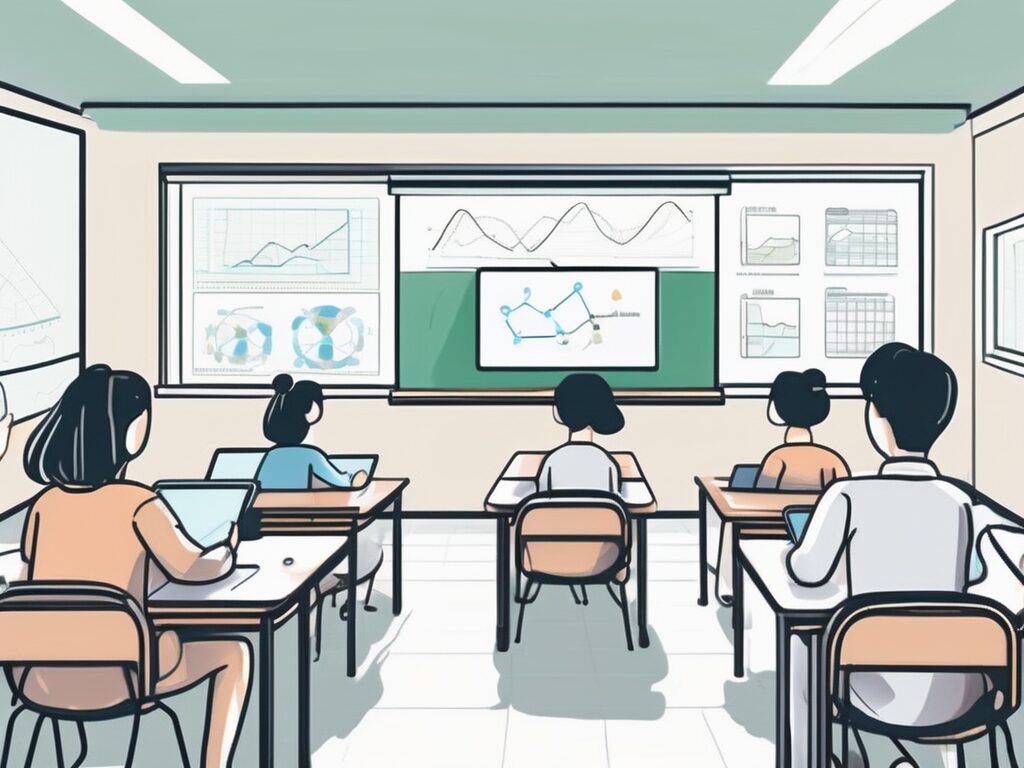In the dynamic world of education, student engagement is a hot topic. It’s the secret sauce that makes learning more effective and enjoyable. Taiwan, a small island nation known for its technological advancements and high educational standards, has been at the forefront of implementing innovative student engagement techniques. This article will explore these techniques, providing insight into how Taiwan is shaping the future of education.
Active Learning Strategies
Active learning is a cornerstone of Taiwanese education. Rather than being passive recipients of information, students are encouraged to take an active role in their learning process. This approach is akin to the difference between watching a football match from the sidelines and actually playing in the game. The latter, undoubtedly, offers a richer and more immersive experience.
One popular active learning technique in Taiwan is the use of group projects. These projects require students to collaborate and solve problems together, fostering a sense of teamwork and shared responsibility. It’s a bit like assembling a jigsaw puzzle as a team, where everyone contributes to the final picture.
Another technique is the use of interactive technology in the classroom. From smartboards to educational apps, Taiwanese schools are leveraging technology to make learning more engaging and interactive. It’s like swapping a traditional textbook for a high-tech gadget that not only provides information but also allows students to interact with the content in a more meaningful way.
Student-Centred Teaching
In Taiwan, the focus of teaching is shifting from the teacher to the student. This student-centred approach is like moving from a one-size-fits-all model to a tailor-made suit, where the learning experience is customised to fit the needs and interests of each student.
One way this is achieved is through differentiated instruction. This involves adjusting the teaching methods and materials to cater to the diverse learning styles and abilities of students. It’s like a chef tweaking a recipe to cater to the different dietary preferences of his patrons.
Another method is through the use of formative assessments. Unlike traditional tests that measure learning at the end of a unit, formative assessments provide ongoing feedback to students about their learning progress. It’s like a GPS system that provides real-time updates on your journey, helping you stay on the right track.
Building a Positive Learning Environment
Creating a positive learning environment is another key aspect of student engagement in Taiwan. It’s like cultivating a garden where each plant is nurtured to grow and flourish.
One way this is achieved is through the promotion of a growth mindset. Students are encouraged to view challenges as opportunities for growth rather than obstacles. It’s like viewing a steep hill not as a hindrance, but as a chance to strengthen your muscles.
Another approach is the fostering of a supportive and inclusive classroom culture. This involves promoting respect, empathy, and cooperation among students. It’s like creating a harmonious orchestra where each instrument plays a vital role in producing a beautiful symphony.
Parental Involvement
In Taiwan, parents play a significant role in their children’s education. This is like having a supportive coach by your side, cheering you on and providing guidance when needed.
One way parents are involved is through regular communication with teachers. This allows them to stay informed about their child’s progress and provide support at home. It’s like a relay race where the baton is passed smoothly between the school and the home, ensuring a seamless learning journey for the student.
Another method is through participation in school activities. From attending parent-teacher meetings to volunteering at school events, Taiwanese parents are actively involved in their children’s school life. It’s like being part of a community where everyone contributes to the success of the whole.
Conclusion
The student engagement techniques used in Taiwan are not only innovative but also effective. They transform the learning process from a mundane task into an exciting journey of discovery. It’s like turning a tedious trek into an exhilarating adventure.
By focusing on active learning, student-centred teaching, a positive learning environment, and parental involvement, Taiwan is setting a benchmark for other countries to follow. It’s like lighting a beacon that guides others towards a brighter future of education.
So, whether you’re an educator looking for inspiration or a parent seeking the best for your child, there’s much to learn from Taiwan’s approach to student engagement. It’s like finding a treasure trove of wisdom that can enrich your educational journey.
Elevate Your Teaching Career with IPGCE
As you marvel at the student engagement techniques in Taiwan and aspire to incorporate such innovative methods into your own teaching practice, consider the International Postgraduate Certificate in Education (iPGCE) as your next step. The iPGCE program is designed to enhance your qualifications, connect you with a global network of educators, and deepen your understanding of international curricula, all while accommodating your busy schedule with flexible online study options. Join the ranks of educators who have seen a significant boost in their career progression, interview callbacks, and salary after completing this Level 7 program. Don’t let inadequate credentials or isolation from professional communities hold you back any longer. Embrace the opportunity to enrich your professional development and adaptability in the global education landscape. Join the UK’s #1 Teacher Training Course today and set yourself on a path to a rewarding and successful teaching career.

